Compassionate Care for Chronic Wounds
Specialized wound care can help those struggling with wounds that do not heal. A comprehensive approach to wound healing addresses the underlying causes of chronic wounds and provides personalized treatment plans. Experts are trained in advanced wound care techniques and are dedicated to promoting healing and improving quality of life.
Specialized Approach:
- An experienced wound care team includes physicians and nurses with advanced training in wound management and therapy.
- Advanced treatment options are available. These include hyperbaric oxygen therapy, debridement, negative pressure wound therapy, and bioengineered skin substitutes.
- Personalized care plans are developed to meet specific needs.
- Patient education is provided, including guidance on wound care at home, to empower individuals to actively participate in the healing process.
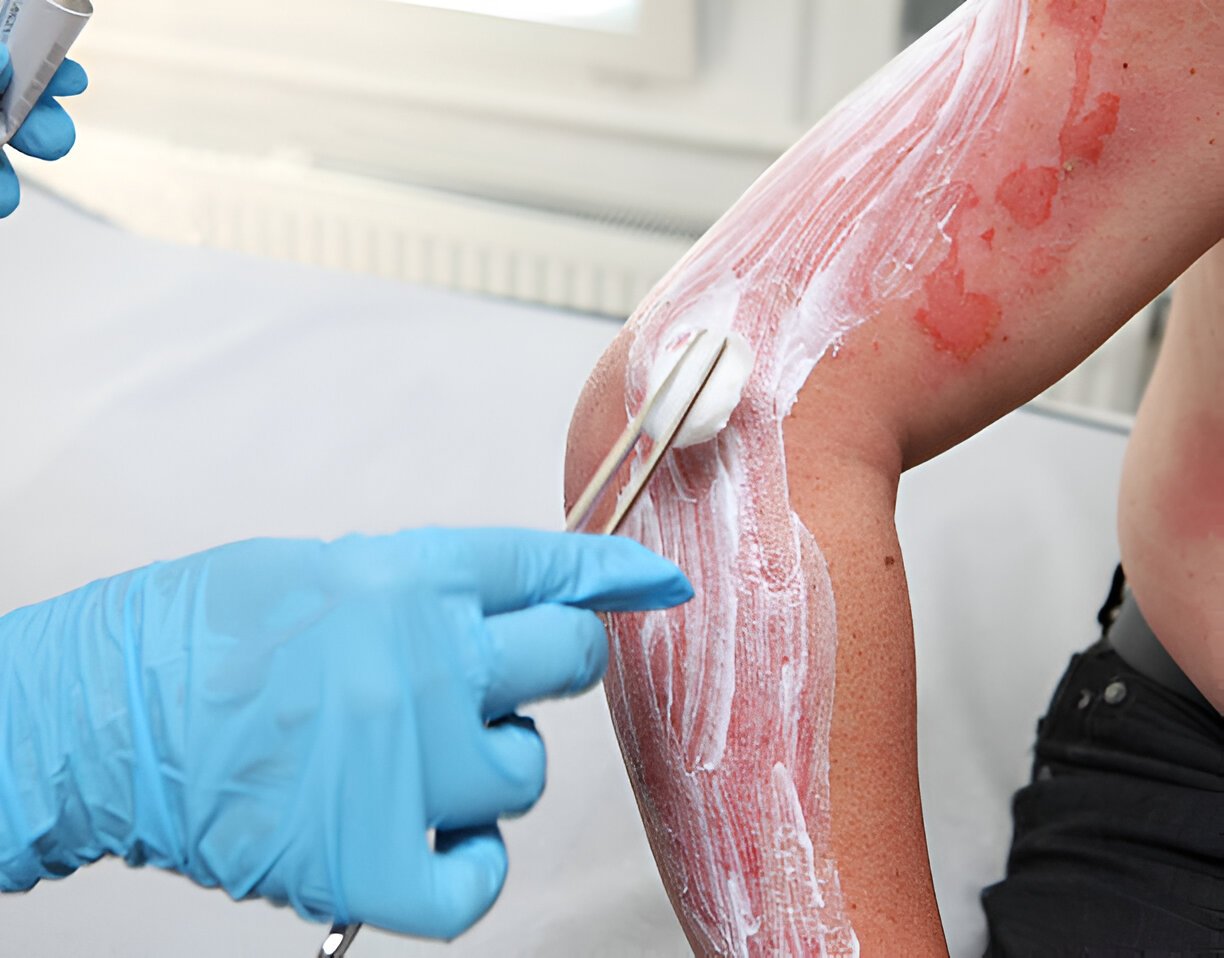
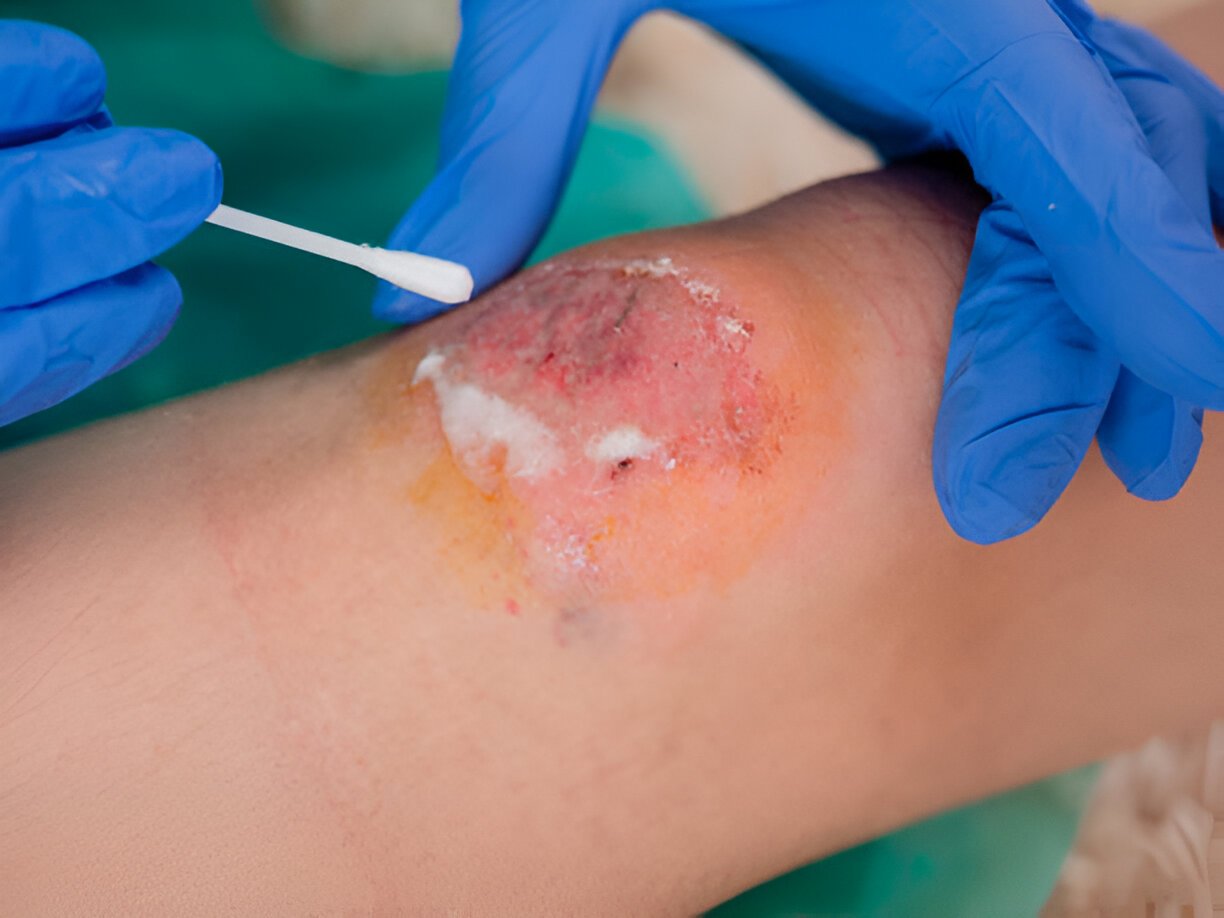
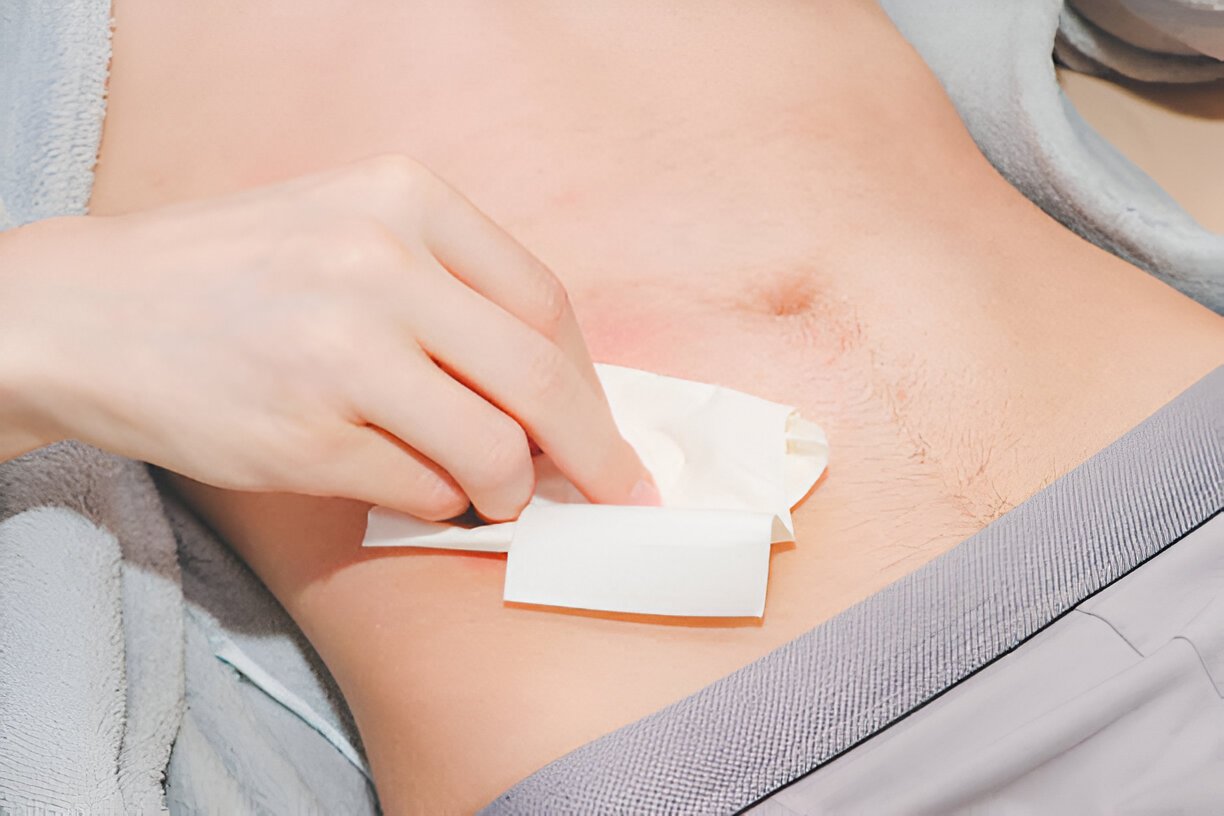
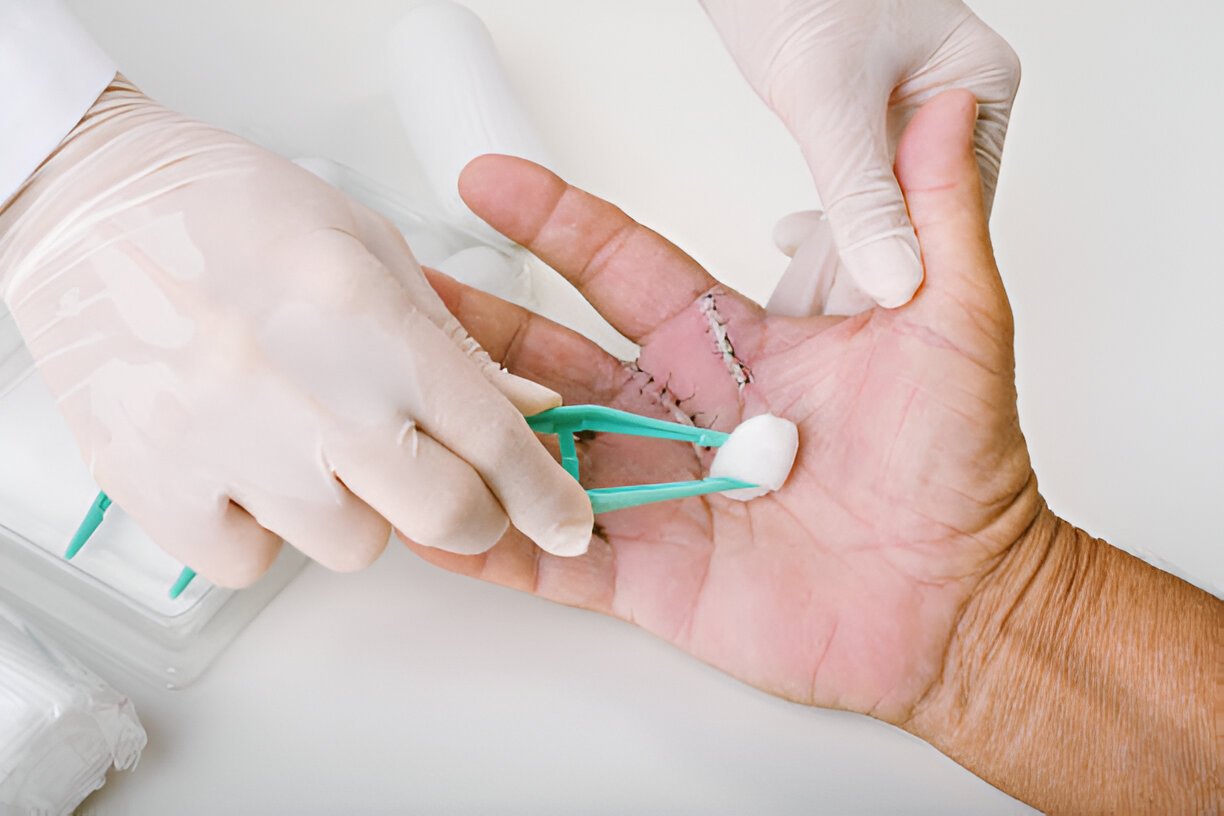
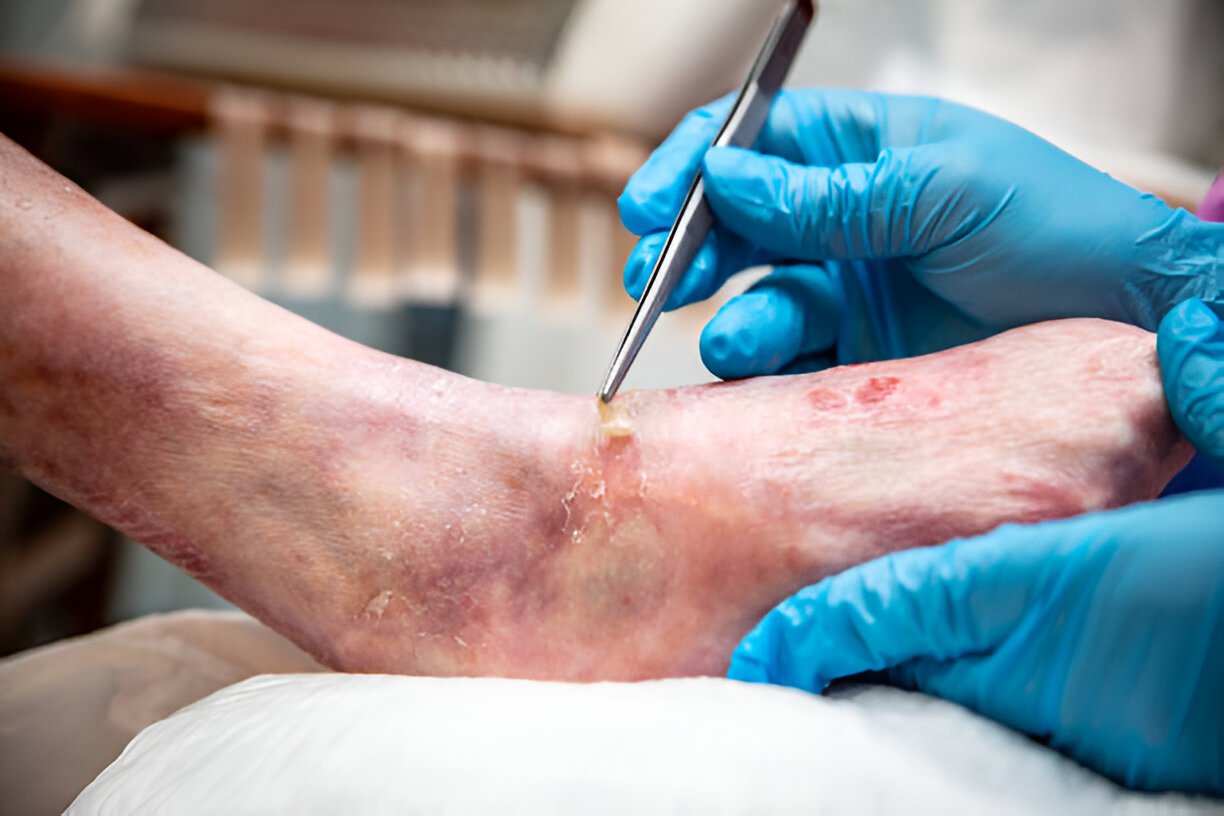
Treatments Offered:
- Hyperbaric Oxygen Therapy: Speeds up healing by increasing oxygen flow to the wound.
- Debridement: Removes dead tissue to promote healthy tissue growth.
- Negative Pressure Wound Therapy: Promotes healing by creating a vacuum over the wound.
- Wound Dressings: Promote a moist environment and prevent infection.
- [Add other relevant treatments as needed]
Schedule a Consultation
-
136 W Higgins Rd, Hoffman Estates,
IL 60169, USA - hoffmanmedicalcenter@gmail.com
- 630-287-8024
Effective wound care significantly reduces pain, prevents infection, and improves both mobility and overall quality of life by accelerating healing, minimizing complications, and managing pain. It involves maintaining a clean, moist environment, ensuring adequate blood flow, and providing necessary nutrients to support the body's natural healing process.
How Wound Care Improves Patient Outcomes:
Pain Reduction:
Chronic wounds can be extremely painful, and effective wound care employs various methods to manage pain, including appropriate dressings, pain medications, and non-pharmacological interventions like electrical stimulation and laser therapy.
Infection Prevention
Effective wound care significantly reduces the risk of complications like infections, osteomyelitis, and even amputations. Proper debridement, antimicrobial dressings, and regular monitoring help prevent infections.
Improved Mobility
By promoting faster healing and reducing pain, wound care can improve mobility, allowing individuals to return to daily activities and engage in physical therapy.
Enhanced Quality of Life
Faster healing times, reduced pain, and improved mobility all contribute to a better quality of life, allowing individuals to live more independently and enjoy a greater sense of well-being.





Key Principles of Effective Wound Care:
Cleanliness
Maintaining a clean and sterile environment around the wound is crucial to prevent infection.
Moisture Management
Maintaining a moist wound healing environment is essential for promoting healing and minimizing pain.
Proper Dressing
Using appropriate dressings that maintain a moist environment, absorb excess fluid, and protect the wound is crucial.
Nutrition and Hydration
Ensuring adequate intake of nutrients and staying hydrated is essential for supporting the body's healing process.
Early Intervention
Promptly addressing wounds and seeking professional help can minimize complications and improve outcomes.
Monitoring and Assessment
Regular assessment of the wound for signs of infection or deterioration is essential.
Individualized Approach
Wound care should be tailored to the individual patient's needs and the specific type of wound.
Pain Management
Addressing pain effectively through various methods, including medications and non-pharmacological techniques, is crucial for improving patient comfort and quality of life.